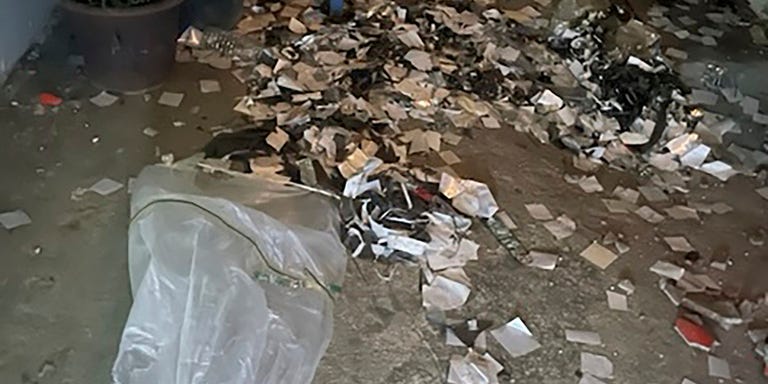North Korea launched another 720 balloons across its border with South Korea Saturday night, carrying plastic bags full of cigarette butts, scraps of cloth, and waste paper.
Pyongyang says it was retaliation for activists sending anti-North Korean leaflets and USB drives containing K-pop music across the border.
South Korea’s Yonhap News Agency said 720 balloons carrying trash were floated into the country, while Reuters quoted a figure of 600.
Since last Tuesday, North Korea has sent up between 850 and almost 1,000 balloons across the demilitarized zone, spreading trash in the capital Seoul and other parts of the country.
The trash balloons adds to a recent series of provocative steps by North Korea, including its failed spy satellite launch on Monday and a barrage of short-range missile launches on Thursday seen as an attempt to demonstrate the country’s ability to preemptively strike its neighbor.
The South Korean military advised citizens not to touch the balloons, warning of possible danger, said the Yonhap News Agency.
The government in Seoul sent text alerts informing the public that unidentified objects from North Korea had been detected in the skies above the city and that the military was responding to them, per the Associated Press.
Jeonbuk Fire Headquarters via AP
Prime Minister Han Duck-soo on Sunday denounced North Korea’s launch of trash balloons as a “depraved provocation,” adding that such actions were “unacceptable to the international community,” said the Yonhap News Agency.
“The government will deal with them calmly, focusing on securing national safety,” Han said.
Sung Tae-yoon, director of national policy in the presidential office, said, “North Korea’s ballistic missile provocations, GPS jamming, and trash balloons harm our people and threaten our security.”
South Korea Defense Ministry/AP
South Korea’s military deployed chemical rapid response and explosive clearance teams to recover debris from approximately 260 North Korean balloons discovered across the country on Tuesday night.
According to the military, this first barrage of balloons contained manure but no hazardous substances such as chemical, biological, or radioactive materials.
South Korea’s defense ministry confirmed the presence of fertilizer to NBC News, not human excrement, which earlier reports had speculated — though the outlet said human feces were sent by North Korea in 2016.
Some of the balloons were equipped with timers, suggesting that they were intended to release the trash in midair, AP reported.
In a statement on Wednesday, Kim Yo Jong, sister of North Korean leader Kim Jong Un, called the balloons “sincere presents” for South Korean “goblins of democracy who are crying for the guarantee of freedom of expression,” according to a statement by state-run Korean Central News Agency on Wednesday.
Source link
lol

